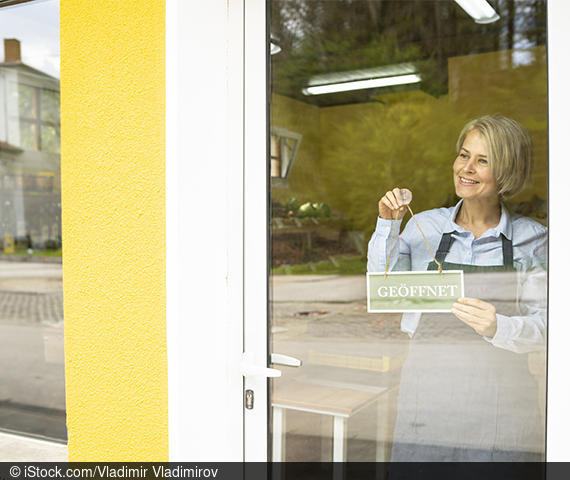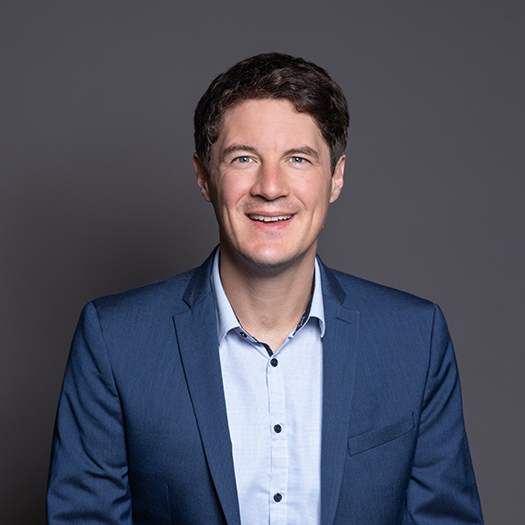Longer Potential Unemployment Benefit Duration Decreases Start-Up Success
ResearchUnemployed individuals who become self-employed are, on average, less successful after having received unemployment benefits for a longer period of time. A longer entitlement to unemployment benefits means that many of those affected remain unemployed for a lengthier period. This, in turn, entails negative consequences for the success of the ventures of unemployed individuals. These are the findings of a recent study conducted by ZEW Mannheim and the University of Zurich. “If people feel pressured to become self-employed as a way out of unemployment, they tend to be less motivated and are less likely to be successful,” says Sebastian Camarero Garcia, a researcher in ZEW’s “Social Policy and Redistribution” Department.
“As a result of receiving unemployment benefits for a long period of time, unemployed individuals can lose valuable professional skills and contacts. The long-term unemployed can also suffer from stigmatization and have difficulties obtaining loans,” explains Martin Murmann, who co-authored the study and works as a researcher in ZEW’s “Economics of Innovation and Industrial Dynamics” Department as well as at the University of Zurich. “On the other hand, long-term recipients also have more time to prepare for self-employment. Potential start-up founders can use this time to attend further training courses and develop a strategy for market entry.”
The maximum potential benefit duration (PBD) depends both on past unemployment insurance (UI) contributions and on a person’s age. After the duration of entitlement was significantly shortened as part of major labour market reforms in Germany (so-called Hartz legislation) adopted in early 2006, policymakers extended it again slightly in early 2018. The researchers used these reforms to analyse the effect of receiving UI benefits on the success of start-ups which were founded by unemployed individuals. To this end, they used a newly created comprehensive data set which combines survey data covering information on founders and their social security data. The researchers examined the data of about 1,300 founders who were unemployed immediately prior to starting a business and who had contributed enough to the social security system to be entitled to receive unemployment benefits for the maximum PBD.
In the study, the researchers distinguish between opportunity-driven and necessity-driven self-employment. The former applies to cases in which start-up founders perceive their self-employment as an opportunity to work autonomously, to realise a business idea, or to earn more than they would have earned as an employee. Founding a company out of necessity, on the other hand, is based on the wish to escape unemployment. When unemployed individuals do not find a suitable position, self-employment seems to be the only way out before exhausting unemployment benefits. Opportunity-driven founders tend to achieve higher sales with their start-ups and to hire more full-time equivalent workers in the first few years after the company has been founded.
The longer founders are entitled to unemployment benefits (higher PBD), the higher the probability that they will become necessity-driven entrepreneurs just before their entitlement expires. For every month that potential founders are entitled to unemployment benefits, the actual unemployment duration rises by half a month. In addition, the start-up’s growth in terms of sales and the employment decreases compared to ventures of founders who are entitled to UI benefits for a shorter period. This means that policymakers can influence start-up success through changing the maximum potential UI benefit duration.
Does this mean that policymakers should reduce the period of entitlement in light of these findings? “This would be the wrong conclusion. Especially in times of crisis, when there is a shortage of job vacancies on the labour market, it is sensible to temporarily extend the period,” explains Martin Murmann. Sebastian Camarero Garcia adds: “For policymakers, our research paper rather points to the fact that employment agencies should as early as possible identify and analyse the skills and career perspectives of those who have recently become unemployed. By responding quickly with targeted further training measures, decision-makers can create better opportunities for those who prefer to work as employees. Individuals with good business ideas, on the other hand, should receive guidance on how to prepare a business plan and receive targeted start-up subsidies.”
In this way, the government can contribute to ensuring that professionals who wish to find employment can do so during their period of entitlement. Around one quarter of all new companies founded each year in Germany are start-ups initiated by unemployed individuals. Similarly, individuals who develop good business ideas during unemployment should receive funding as early as possible so as to support these companies on their road to growth and ultimately success. Finally, the authors recommend integrating the self-employed professionals into the general unemployment insurance scheme to encourage more people to put their business ideas into practice.

